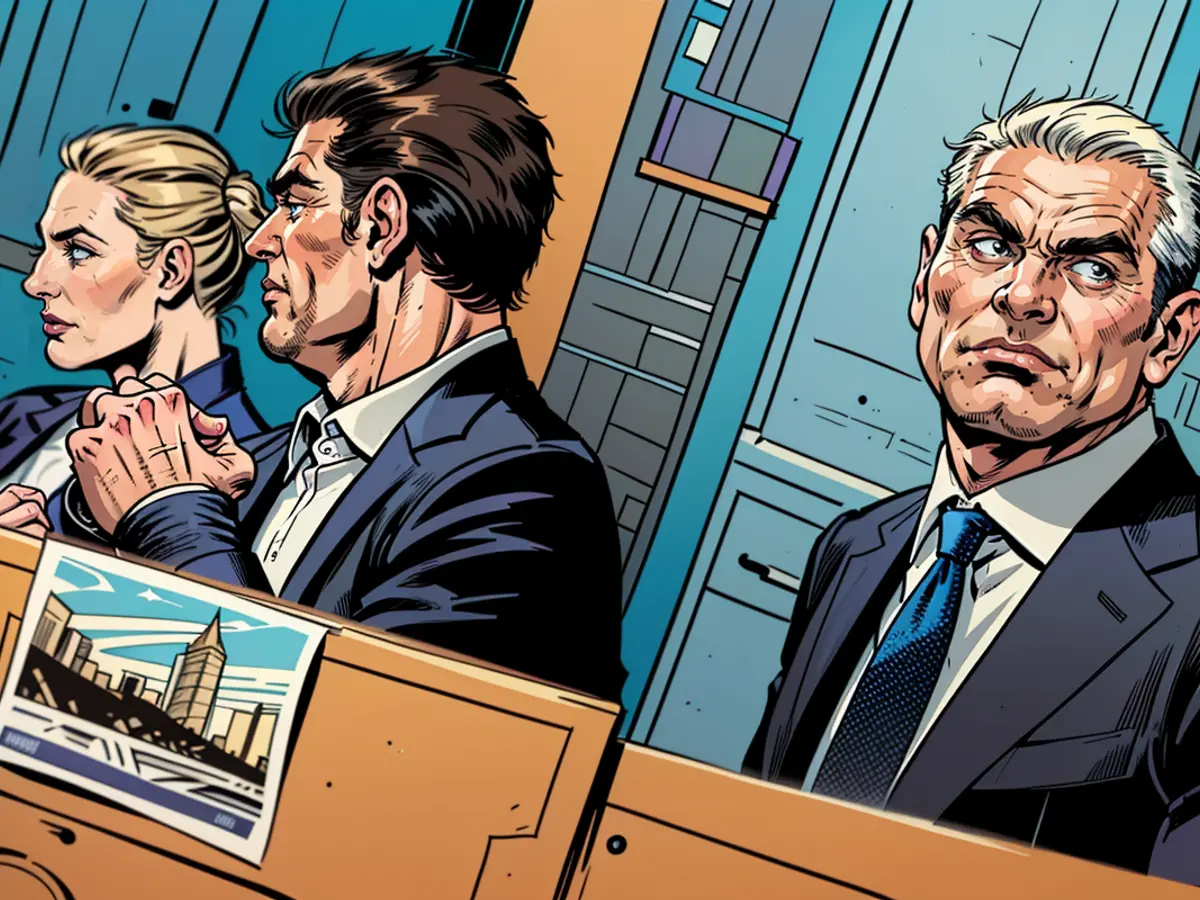- "The election outcome indicates a diminished legitimacy for the traffic light coalition."
Saxony's President of the CDU and CDU's chosen leader, Michael Kretschmer: "This won't be a walk in the park," Kretschmer noted at the CDU's celebration event. "But there's one thing I'm positive about: Through numerous discussions and a strong desire to aid this region, we could potentially create a stable government for Saxony that puts the region first and progresses with humility."
Thuringia's Top Candidate for the AfD, Bjoern Hoecke: "You can't bypass us if you desire stability for Thuringia. Without the AfD's involvement, there will be no tranquility for Thuringia."
Chief of the SPD, Lars Klingbeil: "My objective is for us to enhance," Klingbeil mentioned on Sunday night in ARD, referring to his party's poor performance. However, the SPD surpassed expectations, according to Klingbeil. This is because the SPD fought, the party leader explained. Nevertheless, this outcome "isn't something to celebrate," he admitted. "We need to address people's daily concerns; we need to engage in dialogue," Klingbeil stressed. Particularly the rise of the AfD "is something I can't accept."
Spahn recognizes similarities with BSW
Politician for the CDU, Jens Spahn: Collaboration with the Alliance for Progress and Social Justice (BSW) at the state level is not out of the question for Spahn. According to the deputy head of the Union faction, the BSW in Thuringia primarily focuses on state politics, he stated in ARD. There are similarities with the CDU in areas such as tablets in schools, better education, and rural development. He is more cautious if Sahra Wagenknecht herself has a stronger influence.
Chairman of the FDP and Federal Minister of Finance, Christian Lindner: "The results in Saxony and Thuringia are disappointing," he wrote on X. "But anyone mistakenly believing we're giving up the fight for liberal values is mistaken."
General Secretary of the FDP, Bijan Djir-Sarai: "Despite tonight's bitterness, there's no reason to be dispirited or angry," Djir-Sarai said in ARD. "This evening is undoubtedly a setback for me, but also a short-term setback and a motivator."
Election results in Thuringia "a significant turning point for our country"
Vice President of the FDP, Wolfgang Kubicki: "The election result reveals: The traffic light coalition has lost its legitimacy." Should voters reject the coalition in this manner, it should have repercussions, Kubicki wrote on X. "The people perceive that this coalition is harming the country. And it is undeniably harming the Free Democratic Party."
Leader of the Green Party, Omid Nouripour: "Even if the Minister President has actually been campaigning against his own people for the last two years: To be honest, my pain today is minor compared to the fact that we have a significant turning point and an openly right-wing extremist party has become the strongest force in a state parliament for the first time since '49."
Chairwoman of the Green Party, Ricarda Lang: "If the AfD has managed to become the strongest force in a state parliament, Thuringia – and I hope it doesn't come to this – then that is a significant turning point for our country."
Vice-President of the Green Party in the Bundestag, Katrin Göring-Eckardt: "The election in Thuringia is a democratic test for this country," writes the Green politician on the short messaging service X. "For the first time in the history of the Federal Republic, the AfD, a right-wing extremist, anti-democratic party, has become the strongest force in a state parliament. This must serve as a wake-up call, everywhere in Germany, to preserve our freedom."
Leader of the Left Party, Martin Schirdewan: "Certainly, the right-wing split from the Alliance, led by Sahra Wagenknecht, has particularly impacted my party and the societal left," said Schirdewan in ZDF. "One must admit, BSW is a gift for the AfD, because the societal left and my party suffer the most from it, but the extreme right is strengthened by BSW and its positions."
In the context of potential coalition negotiations in Saxony, Michael Kretschmer, the CDU's chosen leader, might need to consider the AfD's role and stance, as Hoecke, Thuringia's Top Candidate for the AfD, has asserted that they cannot be ignored if stability is sought.
During his analysis of the election results, Leader of the Left Party, Martin Schirdewan, highlighted the impact of the Alliance for Progress and Social Justice (BSW) on the AfD's strength, potentially suggesting a delicate balance for parties like the CDU in future coalitions.








